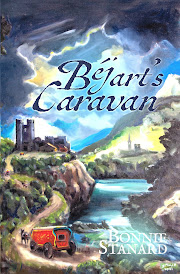Friday, February 13, 2015
Fact re Historical Fiction
REALITY IN FICTION
The Westfall Novels
If you’re a writer of
historical fiction, you know the importance of getting the details right. Too
many mistakes brings into question your “reality,” and you risk losing not only
readers, but your credibility as a writer. This subject will be discussed by a
panel (“The History Behind Fiction”) at the Book ‘Em North Carolina festival in
Lumberton on February 28.
I hope the inaccuracies in
the antebellum novels I’ve written are small, innocuous ones. With good reason,
I didn’t write the following sentences. Can you figure out what’s historically
wrong?
-A boy threw a pebble and
broke the kitchen window, a nuisance that sent the overseer to the village for
a new one.
-The slave slipped into his
master’s office and stole an ink pen and wristwatch.
-They took their son to the
doctor, who gave him mercury pills for his fever.
-She was so nervous she
sneaked into the piano parlor and lit a cigarette.
*See below for explanation.
SANDWICHES, MATCHES, STEEL
Sometimes you’ll find
conflicting information. The word sandwich originated in the 18th century, but you won’t see references to them
in 19th century diaries, magazines, or recipe books. I had a heck of a time
figuring out how people started fires. Matches existed in Europe, but they were
hard to come by in antebellum literature. After much research, I reached the
conclusion that matches were making their appearance, but they were an early,
and more volatile, version. I’ve seen in other antebellum novels references to
steel. Until the Bessemer Process in 1855, steel was so difficult to produce it
was rare in everyday life.
DIGGING FOR ANSWERS
The answers to many
questions are found on Wikipedia, which I have used extensively. Books written
during the 1850s, diaries in particular, were reliable sources. However, in
general, slaves didn’t read or write, for it was prohibited by law. Most of the
information I gathered about slaves came from the Slave Narratives, stories
gleaned from former slaves by writers employed by the Federal Government in
1937-38. These narratives are available at the Library of Congress and are not
only informative but interesting.
* Though glass jars were
used, glass for windows was imported from England.
-Ink pens and wristwatches
as such didn’t exist. More common were the quill and ink pot and pocket
watches.
-Sick people didn’t go to
the doctor. He came to them. Mercury pills were used to treat syphilis.
-Cigarettes didn’t exist. Cigars did, and if a person lit one, he usually did it
from a fire in the fireplace.
Subscribe to:
Post Comments (Atom)












No comments:
Post a Comment